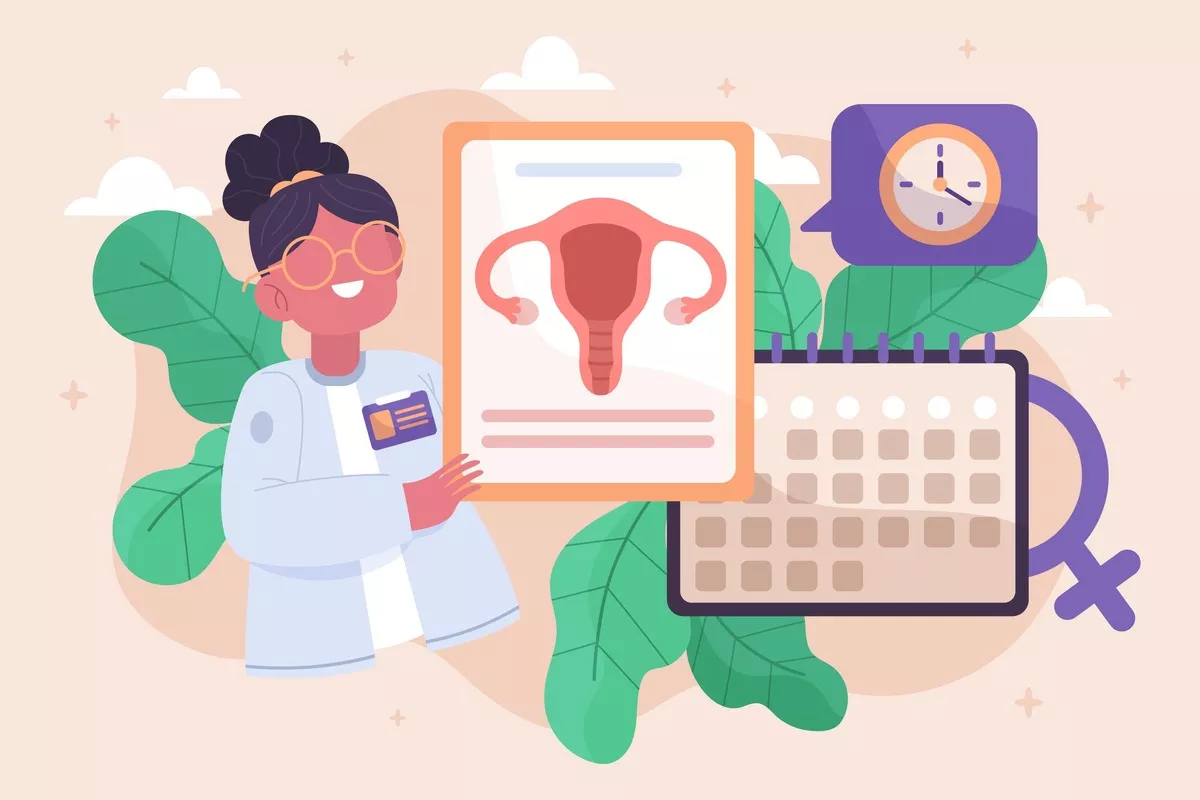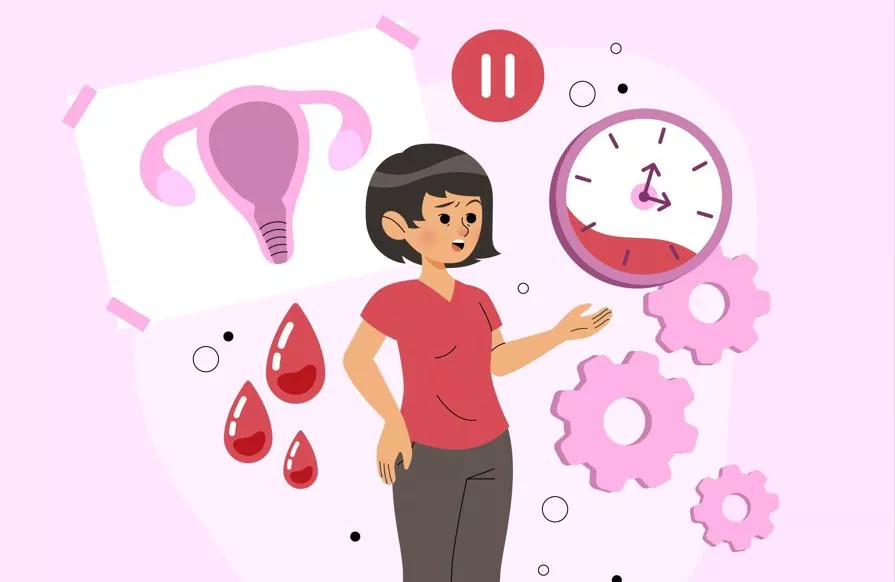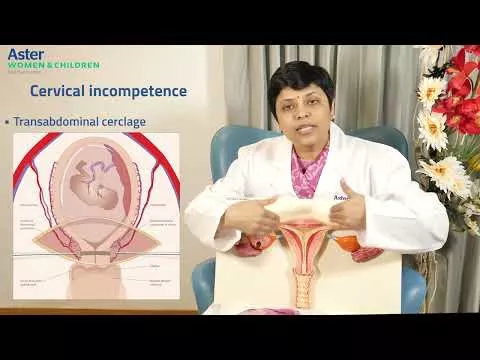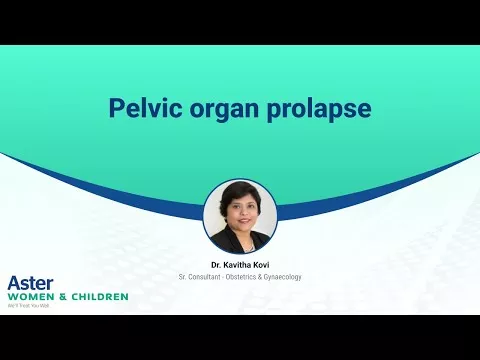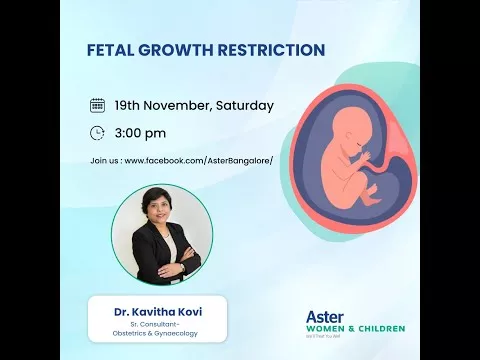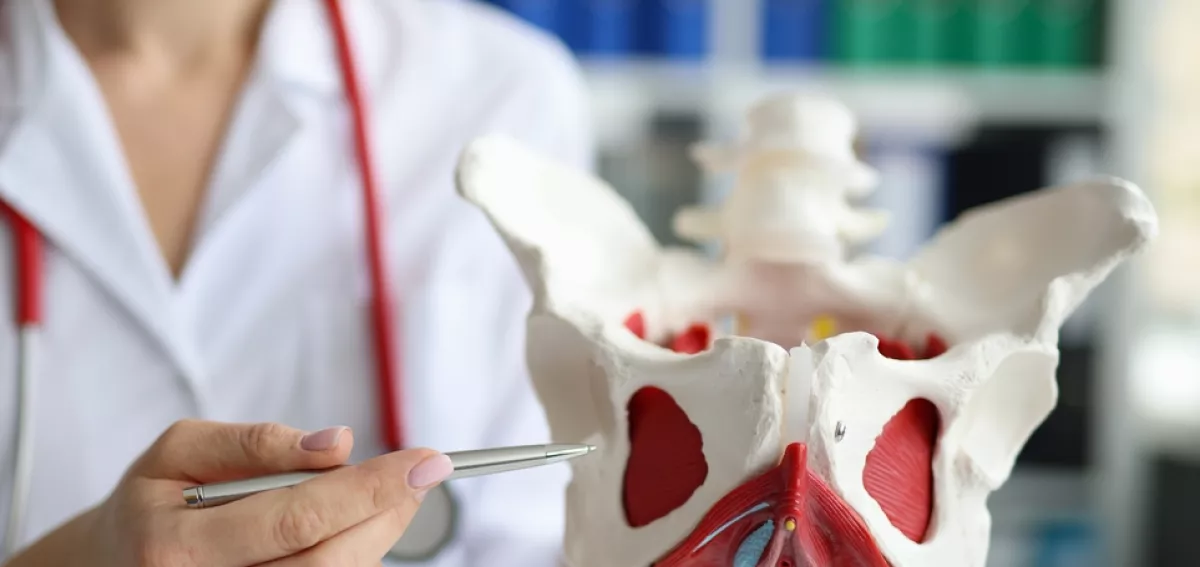Introduction
Menopause marks a significant transition in a woman's life, signalling the natural end of her reproductive years. Beyond common symptoms like hot flashes, it impacts bone health, heart function, metabolism, and skin aging. Declining estragon levels accelerate physiological changes, influencing energy, cognition, and emotional well-being. Understanding these effects is key to managing menopause with confidence. This blog explores how menopause shapes aging, its impact on overall health, and practical strategies to maintain vitality, ensuring a smooth and healthy transition.
What is Menopause?
Menopause occurs when a woman has gone 12 consecutive months without a menstrual period, typically between ages 45 and 55. The transition leading up to menopause, known as perimenopause, can last for several years and is marked by fluctuating hormone levels. After menopause, a woman enters the postmenopausal phase, where certain health risks become more pronounced due to hormonal decline.
Several factors influence the onset and severity of menopause, including genetics, lifestyle, and medical conditions. Despite being universal, menopause is unique to each woman.
Hormonal Changes and Their Impact
The most significant changes during menopause stem from the decline in estrogen and progesterone levels. These hormones regulate various bodily functions, and their reduction can lead to multiple health concerns, including:
• Metabolism Slowdown & Weight Gain: Lower estrogen levels can cause metabolic changes, leading to a rise in fat accumulation, especially around the abdomen. This can elevate the risk of obesity, diabetes, and cardiovascular diseases.
• Loss of Muscle Mass & Bone Density: Menopause accelerates muscle loss (sarcopenia) and weakens bones, making women more susceptible to osteoporosis.
• Skin & Hair Changes: Reduced estrogen levels decrease collagen production, leading to dry, thinning skin, wrinkles, and hair loss.
While these changes are inevitable, adopting a healthy lifestyle can help mitigate their impact.
Menopause and Bone Health
Estrogen plays an imperative role in maintaining bone density. With its decline, women experience rapid bone loss, increasing the risk of osteoporosis and fractures. To maintain bone health:
• Ensure adequate calcium and vitamin D intake.
• Consider bone density screenings to assess risk and take preventive action.
• Weight-bearing and resistance exercises can strengthen bones and muscles.
By prioritizing bone health, women can reduce the likelihood of fractures and maintain mobility in later years.
Cardiovascular Health Risks
Postmenopausal women are highly susceptible to heart disease. Estrogen has a protective effect on the heart, and its decline increases the risk of:
• High blood pressure
• Elevated cholesterol levels
• Arterial stiffness and plaque buildup
To support heart health, women should:
• Maintain a balanced diet rich in whole grains, lean proteins, and healthy fats.
• Engage in regular cardiovascular exercises like walking, swimming, or cycling.
• Monitor blood pressure, cholesterol, and blood sugar levels through routine check-ups.
Cognitive and Mental Health Effects
Menopause is often linked to cognitive changes such as brain fog, forgetfulness, and difficulty concentrating. Research also suggests that hormonal fluctuations may contribute to an increased risk of Alzheimer’s disease and dementia.
Additionally, many women experience mood swings, anxiety, and even depression during this transition. To support mental health:
• Practice stress management techniques such as yoga, meditation, or mindfulness.
• Engage in social activities to reduce feelings of isolation.
• Maintain good sleep hygiene to prevent fatigue and cognitive decline.
If symptoms become overwhelming, seeking professional help can provide effective coping strategies.
Sleep Disruptions and Fatigue
Sleep disturbances are common during menopause due to night sweats, hot flashes, and increased anxiety. Poor sleep can accelerate aging and negatively impact overall health. To improve sleep quality:
• Stick to a consistent sleep schedule.
• Avoid caffeine and alcohol before bedtime.
• Create a cool, dark, and comfortable sleeping environment.
If insomnia persists, discussing treatment options with a healthcare provider can be beneficial.
Skin, Hair, and Overall Appearance
Menopause affects physical appearance due to hormonal changes. Women may notice:
• Thinning hair and increased hair shedding
• Drier skin with reduced elasticity, leading to wrinkles
• Age spots and increased skin sensitivity
To maintain healthy skin and hair:
• Use hydrating skincare products containing retinol and hyaluronic acid.
• Protect skin with sunscreen to prevent premature aging.
• Maintain a balanced diet rich in vitamins and antioxidants.
Lifestyle Adjustments for Healthy Ageing
Adopting a proactive approach to health can help women navigate menopause with ease. Key lifestyle changes include:
• Balanced Nutrition: Focus on whole foods, lean proteins, and fiber to support metabolism.
• Regular Exercise: Combine strength training, cardio, and flexibility exercises to maintain overall fitness.
• Self-care & Stress Management: Engage in activities that promote emotional well-being, such as journaling, hobbies, or spending time with loved ones.
Medical Interventions and Natural Remedies
Women experiencing severe menopause symptoms may consider medical and natural treatment options.
Hormone Replacement Therapy (HRT):
HRT can effectively alleviate symptoms like hot flashes, mood swings, and bone loss. However, it is essential to consult a doctor to weigh the benefits and risks.
Non-Hormonal Alternatives:
• Herbal supplements like black cohosh and soy isoflavones may provide relief for some women.
• Cognitive Behavioral Therapy (CBT) can help manage anxiety and sleep disturbances.
Conclusion
Menopause is a significant life transition, but it does not have to be a period of decline. By understanding the health impacts and making informed choices, women can embrace this phase with confidence. Prioritizing nutrition, exercise, mental well-being, and medical guidance ensures a smooth transition and promotes healthy aging.
Rather than seeing menopause as an end, women should view it as an opportunity for renewal—focusing on self-care, strength, and overall wellness. After all, menopause is not about pausing life, but about stepping into a new, empowered chapter with grace.
